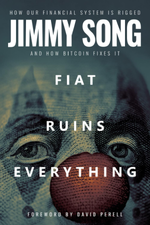Interesting recent Altcoin Buzz Short Video of 5 Coins to 100X:
Curious the collective wisdom here of these 5 coins? RSVP here plz.
These don't look like 100Xs.
It's hard to get correct details. I can't see if ASTR is a 1,000 TPS chain or 1 million. It has 12 seconds to finality, which is poor for a POS chain. If it's 1,000 TPS, that is the low end of last season's picks. It does have $67m TVL though, which is decent for its size.
Myro is a Solana meme coin. Solana has become a giant meme coin casino, which maybe 1,000s of them. I think the meme coin play is only worth it if you can get in on a chain's first meme coin early. A lot of people are in BASE (Coinbase's chain)'s meme coin TOSHI. It's about $50m cap now. And a lot of people are saying it will 20X. It's named after the Coinbase founder's cat. So people say it will get on Coinbase. Another is WANG on ALPH. This is on a basic airdrop now. See @ChengisWang on Twitter. Just picking up the airdrop could end up being a few $K in 18-20 months.
Kaspa has had it's big run. I don't really see it being a top 10 coin. Could get into the top 20, but I don't think it's the strongest pick of fresh L1s.
I haven't looked into Celestia. Uma is too old, IMO.
I've had a look through the top 20 new L1s.
These are the ones I'd go for.
Sui has just boomed to over #50 rank. It's a 300k TPS chain that can process TXs in less than half a second. That's about 10X more than Solana. Solana's finality is variable between 500ms and 3s. Sui also has a very large TVL (locked in defi platforms). Just shy of $500m. That's way ahead of any other new chain and hyper-bullish. The more people actually use them, the higher the price will go. This was the case with Solana, ETH and BSC last season. Their strong DeFi sectors led to their boom. Strength of the DeFi sector had a high correlation to market cap. Sui is massively juicing activity on their chain, far beyond other new chains. They already have over 22 DeFi platforms. I would tip this as the Solana of 2025 - a top ten coin.
Looking at a 10-20X.
Qubic is a sleeper that is off many people's radars. Yet it's already traded up to $300M cap on a few junk exchanges due to its narrative. It's at about $225m now. I doubt it will dip much below $200m. The lead dev is probably the best dev in crypto - Sergey Ivancheglo - who was (co-)founder of IOTA and NXT. Both top 50 coins in their time. He also holds 800k BTC. Qubic is the fruit of his years of pondering on blockchain tech. This has led to the giga-chain, known as QUBIC, with a competition shredding 40 million TPS with tested 0.2ms finality. What makes this even more stupendous is that Qubic is a POW chain. All the other high TPS chains a POS chains. The closest competing POW chains are KAS and ALPH at 10k. Qubic has also woven AI into it. Not looked at specifics yet.
Hard it say on the return, as it's not out of the woods yet, but the narrative is so strong and the interest in it so high that it could enter the top 10. Maybe 20-300X.
Alephium is basically the same as KAS, but with better security, and despite smaller funds, a better and quickly growing ecosystem. Very strong community. 10k TPS and 16s block time. Still lower cap.
Looking at 30-100X.
For your fresh L1 plays from here, I'd take those three. Another possibility is Tectum with 1.3m TPS and its own consensus mechanism - not POS or POW. Sui and Tectum have staking rewards of about 20%. None for Qubic and ALPH as they are POW.
I want to look at some more of the fresh coins that are already highly ranked, particularly BitTensor. Someone tells me this a top five coin. AI.
@chance vought - I have a similar take to one or two of your posts above. That eventually we will end up with one ecosystem that processes most applications, data, scripts, computing. Once it gets to that point whatever token it is - it will end up mildly deflationary. And it can be used to mint some sort of stable coin, with it as backing. Preferably that can be a real stable coin tied to a real CPI basket with 0% inflation. That is real money. It redistributes to no one. But I don't know if that will be BTC. These new chains - ALPH, KAS, Qubic. Is there anything technically that they miss or are weak on, that BTC is better at? I don't know the answer. But you can see clearly there are things that are better about them. The tipping point is if one chain that has adoption cannot do what it's meant to do - be a base layer for finance and apps. That happened in 2021, when BSC and Solana were able to capitalise because ETH is too slow and expensive. Right now, IMO, Bitcoin's long-term future is riding on something like Stacks. But it even looks like Stacks is too slow (for now). If it gets to the point that this space, which is at its core decentralised computing and finance, cannot grow on a dominant chain, it will quickly loose adoption. And I think the chances of that happening with BTC are relatively high. But the reality is, that even 40m TPS giga-chain Qubic is too slow. These things are ultimately going to need to handle billions or trillions of TPS at web-speed. That's a long way out, but if BTC can't have at least 10,000 TPS running on top of it by about 2030, I think that will be the point it starts to die. There's going to be a lot more development here. Too early to pick a chain that will end up dominant, and it's quite likely that chain doesn't exist yet - whether it be an L1 or an L2 on BTC.
As mentioned in an earlier post, people often make the mistake of comparing crypto to internet users by looking at BTC addresses. That's the wrong way to look at it. As internet users were using the internet. BTC wallets are mostly inactive. And many people have many addresses. I probably have about 50-70. Regular crypto users are probably in the millions. Maybe 10 million. That's about the number of internet users in 1991. Expect the big adoption boom in crypto towards 2030-.



